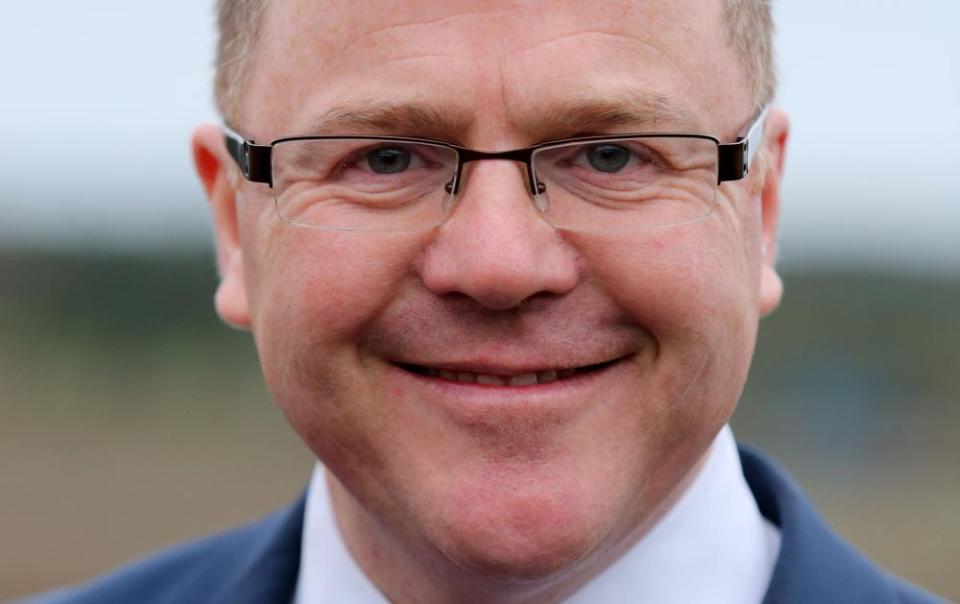George Freeman’s dismissal of anxiety is pig-ignorance and must be called out | Eleanor Morgan

Tory MP George Freeman, who is director of Theresa May’s policy unit, is under fire for his comments on BBC 5 Live regarding proposed reforms to personal independence payments (PIPs). “We want to make sure we get the money to the really disabled people who need it,” he said, explaining how reforms are needed to stop the government being responsible for a deficit of over £3.6bn. Those who don’t need it, apparently, are “people who are taking pills at home, who suffer from anxiety”, labelling tribunal decisions that the Department for Work and Pensions should expand the reach of PIP as “bizarre”.
After being challenged, Freeman said: “I totally understand anxiety and so does the prime minister”, adding he doesn’t “need any lectures on the damage anxiety does”. Only, this seems to be precisely what is needed. This pig-ignorance must be called out.
Obviously, many have lambasted Freeman – not least No 10. A source said it was not the language they would have chosen, but made clear the government’s pledge for mental health parity of esteem. “Nobody will see a reduction in the amount of PIP they were awarded by DWP, and this update will allow the welfare system to target support at those who need it most.”
Given the prime minister’s commitment to mental health, though, both Labour and Tory MPs have suggested that she can surely no longer rely on a policy adviser who dismisses those suffering with serious mental health problems as not “really disabled”. Some say Freeman should resign. He has since apologised – sort of and likely because No 10 told him to – but the comments will ring around the ears of those not “really disabled” people who are finding it difficult to navigate the outside world as a result of poor mental health.

Not all disability is visible. Mental distress comes in many flavours and can affect us in all sorts of ways. If we focus on anxiety, as Freeman has, the impact of symptoms can be so great that a person may not feel able to leave their house. I’ve fortunately never had to claim benefits but I’ve been that person, unable to go out. It’s frustrating, embarrassing to explain (thanks to precisely this kind of stigma) and adds to feelings of worthlessness. If your income isn’t steady, or is temporarily nonexistent, the lack of financial security will add to the catastrophic thought patterns that define anxiety: “How am I going to afford to live? I don’t see any way out of this. There’s no way out of this.”
Anxiety is a symptom (or rather, a vast collection thereof) of almost every kind of mental health problem
Anxiety is a symptom (or rather, a vast collection thereof) of almost every kind of mental health problem. The diagnostic borders are often blurred in this respect. So are we telling someone in the throes of a psychotic episode (with schizophrenia, for instance), undoubtedly anxious beyond belief, that they’re not – even temporarily – disabled?
Are we telling victims of sexual assault with PTSD, experiencing flashbacks and agoraphobia (not a fear of open spaces, per se; more a fear of what will happen within them), that they shouldn’t have some kind of financial safety net from the state while they receive treatment and recalibrate?
What about those being treated for anxiety or depression who remain isolated in their homes because they don’t have a support network? How on earth does Freeman suppose they’ll look after themselves and have money to eat if their PIP is taken away? And isn’t his a pathetically shortsighted view, given that people who become mentally unwell do recover, aren’t unwell for ever, and may just need a small financial hammock to help them recalibrate, get back into the world and contribute?
Freeman says any offence caused was inadvertent. If we were offended, should we accept this? A bit of dodgy language under pressure ain’t no biggie, surely. Just a little oversight that shouldn’t detract from a move towards parity? No way. Words matter. Freeman’s view will sadly reinforce the stigma that those trying to manage poor mental health – thought to be one in four of us over any given year, but likely more due to under-reporting thanks to, again, stigma – will be struggling with.
Politicians need to realise they can’t treat public platforms like their home sofas and say whatever the hell they like. That Freeman said what he did while his boss continues to make mental health such a priority would be laughable if the bigger picture wasn’t so desperate.
The distress foisted on people with disabilities – physical or mental – by this government cannot be overstated. Many are saying Freeman has dragged the Tories further into the gutter, but how could it get deeper? No minority group, it seems, can dodge their claws. This weekend we learned that the government’s promise to stop sending LGBT asylum seekers back to countries where they face prosecution was clearly nonsense – they’re now telling such people to pretend to be straight. Sick-making? Yes. Surprising? No.
The habitual lack of surprise we now feel every time the Tories propose decisions that will inflict suffering should not make us despondent. If we know someone currently disabled with anxiety or any other mental health issue, we must remind them that we don’t see them as any less than whole and that, even if we don’t fully understand their distress because we’ve not experienced similar, we can empathise.
Tory discourse may tell us we’re either striving or skiving, but striving is all those debilitated by poor mental health are doing. Striving to come out the other side and regain the sense of purpose and worth that may have left them.

 Yahoo News
Yahoo News 
